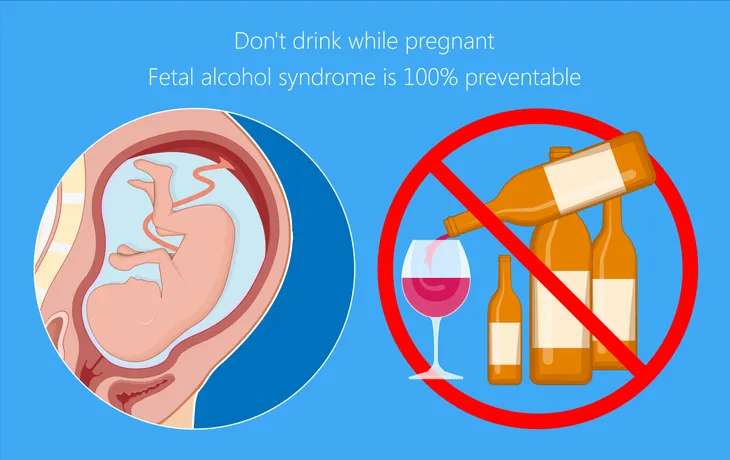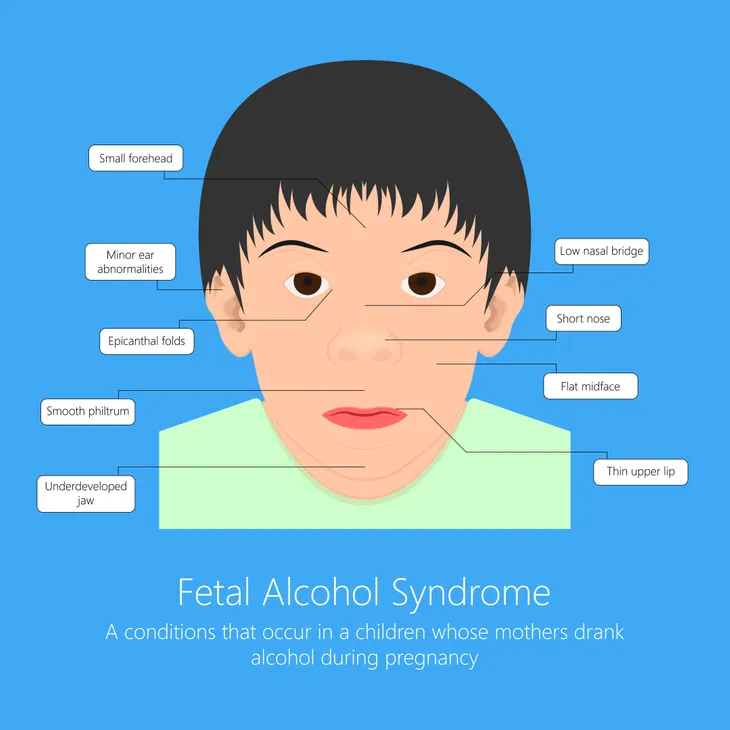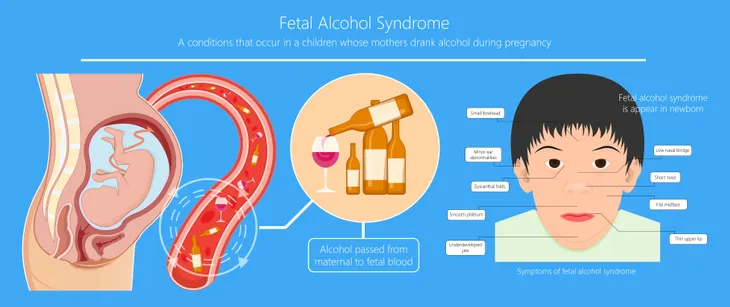It is estimated that Fetal Alcohol Syndrome (FAS) affects approximately 1 in 750 children born each year in the U.S., while about 40,000 newborns each year will contend with the effects of alcohol exposure in the womb or fetal alcohol effects (FAE) sometime during their lifetime.
We’re taking a closer look at the truth behind alcohol and pregnancy. Take a look…
Pregnant Women and Alcohol Consumption
According to the American College of Obstetrics and Gynecology (ACOG), pregnant women should abstain from consuming any alcohol while pregnant due to the negative effects of alcohol on the development of their unborn fetus.
Alcohol Affects Every Woman and Every Fetus Differently
Although a lack of medical evidence exists to indicate the amount of alcohol that leads to Fetal Alcohol Syndrome (FAS); the understanding is that women and fetuses process alcohol differently. Other factors such as current age, diet, and health of the mother and incidence of alcohol ingestion (i.e., binge drinking) also need to be considered.
Drinking While Pregnant Causes Birth Defects
Drinking during pregnancy has been linked to numerous birth and behavioral defects—including slow growth and developmental delay, abnormal facial features, brain and neurological defects, mood disorders, mental retardation, and separation anxiety.
The Physical Damage of Drinking While Pregnant
Consuming even one alcoholic beverage each week while pregnant can cause an unborn child permanent and/or delayed physical, behavioral, and mental damage that may not show itself until adolescence.
The Physical Signs of Fetal Alcohol Syndrome on Newborns
Common physical signs and symptoms of Fetal Alcohol Syndrome at birth include a combination of low birth weight, small head, improperly working organs or complete organ dysfunction, small eyes, flat cheeks, and other facial abnormalities such as flat philtrum (the natural furrow between the nose and upper lip).
FAS Linked to Learning Disabilities in School-Aged Children
Fetal alcohol syndrome often displays itself in mild to severe learning disabilities—including reading difficulties (i.e., dyslexia), trouble focusing, low patience tolerance, and lack of social boundaries—when kids enter their first year of school.
FAS and Other Life-Altering Learning Disabilities
Common signs and symptoms of developmental or learning disabilities in children with Fetal Alcohol Syndrome include—lack of fine motor skills, poor memory, underdeveloped speech and language skills, and poor problem-solving skills.
FAS and Behavioral Problems
Common behavioral problems in children with Fetal Alcohol Syndrome include—poor social skills, lack of curiosity and creativity, hyperactivity, social anxiety, impulsive behaviors (propensity to addiction or sexual behaviors), hyperactivity, belligerence with authority, and angry irritability.
The Effects of Fetal Alcohol Syndrome on Adults
The long-term and lasting effects of Fetal Alcohol Syndrome can last into adulthood in the form of health problems that crop up in the late teens and into early adulthood, troubles with the law, and dependence on others to live healthy, safe lives.












